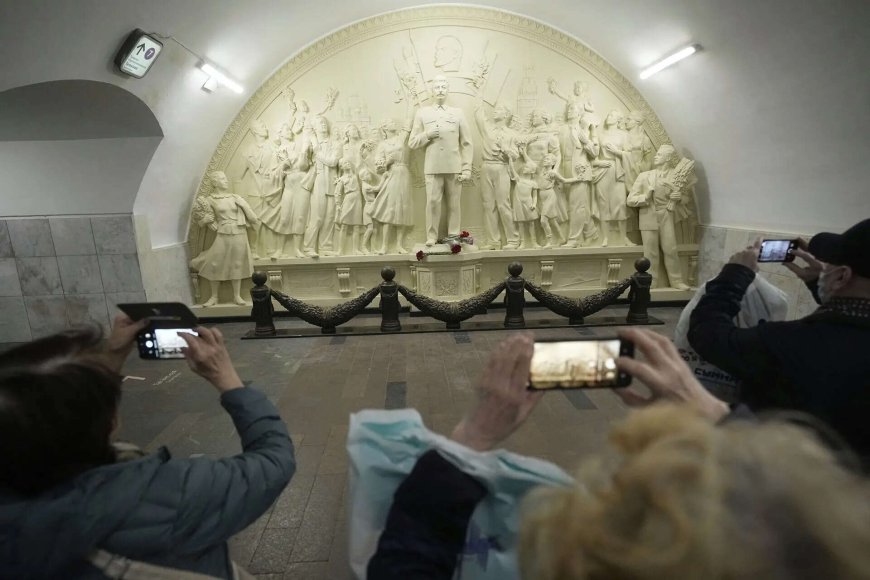A statue of Stalin is unveiled in the Moscow subway as Russia tries to revive the dictator's legacy
A monument honoring Josef Stalin has been unveiled at Moscow's Taganskaya subway station, sparking mixed reactions. The statue, depicting Stalin surrounded by workers and children, commemorates the Moscow Metro's 90th anniversary. While some Russians view Stalin as a strong leader who modernized the country, others condemn his brutal repression. Activists protested the unveiling, citing Putin's own criticism of Stalin's crimes.

A Statue of Stalin is Unveiled in the Moscow Subway as Russia Tries to Revive the Dictator's Legacy
Breaking News, Daily Updates & Exclusive Stories - theoddnaari
In a surprising move that has ignited discussions across the globe, a monument honoring Josef Stalin has been unveiled at Moscow's Taganskaya subway station. This unveiling, which commemorates the 90th anniversary of the Moscow Metro, has sparked mixed reactions among the Russian populace and beyond.
The Unveiling Ceremony: Celebrating 90 Years of the Moscow Metro
The newly erected statue depicts Stalin surrounded by workers and children, embodying an image that some Russians associate with strength, resilience, and modernization. The Moscow Metro has long been considered a symbol of Soviet engineering excellence, and this tribute attempts to connect Stalin’s legacy to its history.
However, the timing of this unveiling raises eyebrows, as Russia is seen as trying to revive the dictatorship's legacy in light of current geopolitical tensions. While some view Stalin as a pivotal figure in the nation's development, particularly in transforming the economy and infrastructure, many others remember him for his brutal repression and the extensive purging of dissidents.
Mixed Reactions: Russian Public and International Perspectives
The responses to this unveiling have varied widely. For some Russian citizens, Stalin represents a powerful leadership that brought the country through transformative changes. The perspective of viewing Stalin as a strong man persists in parts of the population, with many reflecting on a time of stability under his rule.
Conversely, others condemn his totalitarian regime, which was marked by widespread human rights abuses and terror against the populace. Activists have protested against the statue, arguing that it glorifies a dictator whose policies led to the suffering of millions.
Putin's Stance and Historical Context
This unveiling comes in a complex political landscape, especially with President Vladimir Putin's past criticisms of Stalin's regime. Some observers feel that the state is walking a fine line in attempting to regain parts of Russia's historical narrative while also addressing contemporary criticisms about authoritarianism.
By juxtaposing a celebration of the subway's achievement with the ideals that Stalin represented, the Russian government seems to be navigating through a contentious historical interpretation that suits its current agenda. Critics argue that it undermines the voices of those who suffered under Stalin's regime.
Conclusion: A Reflection of Today's Russia?
The unveiling of the Stalin statue at the Moscow Metro not only represents an effort to commemorate a significant infrastructure achievement but also serves as a bookmark in Russia's ongoing relationship with its past. The debate surrounding Stalin's legacy continues, reflecting a nation that grapples with its identity in the wake of a storied yet turbulent history.
As Russia moves forward, the implications of such commemorations challenge citizens to reflect on their collective memory, questioning whom they choose to celebrate in the context of modern democratic values and human rights. The ongoing conversations surrounding the unveiling will likely persist, as Russians navigate through the fog of history versus the reality of today.
For more updates, visit theoddnaari.com.







